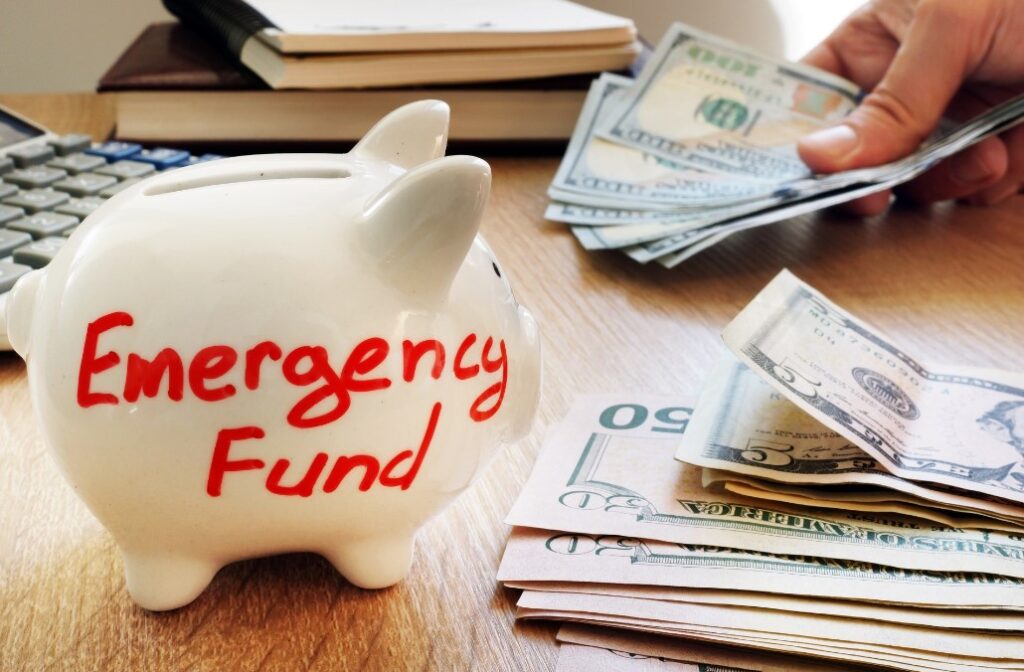Bankruptcy can be a challenging and emotionally draining experience. It often feels like a financial reset button, providing individuals and businesses with a fresh start, but it also comes with its share of consequences, particularly on one’s credit score and financial standing.
However, it’s important to remember that recovery is possible. With strategic planning, discipline, and professional guidance, you can rebuild your financial health and credit after bankruptcy. In this comprehensive guide, we will walk you through the steps to help you regain control of your finances and pave the way for a brighter financial future.
Seek Professional Guidance from a Bankruptcy Attorney
The first step in the process of rebuilding your financial health after bankruptcy is to seek professional guidance from a qualified bankruptcy attorney. They are experts in the field and can provide invaluable advice on navigating the complexities of bankruptcy laws and procedures.
A bankruptcy attorney can help you understand your rights, guide you through the necessary paperwork, and offer strategic counsel on how to proceed. Their expertise can make a significant difference in ensuring that the process goes as smoothly as possible.
A seasoned bankruptcy attorney possesses a deep understanding of the legal intricacies surrounding bankruptcy. They can assess your specific situation, recommend the most suitable type of bankruptcy (Chapter 7 or Chapter 13), and guide you through the entire process. Their expertise extends to negotiations with creditors and ensuring that all required documentation is accurately prepared and submitted. With their support, you can navigate the often complex legal procedures with confidence, knowing that you have a knowledgeable advocate by your side.
Assess Your Financial Situation

After bankruptcy, it’s crucial to conduct a thorough assessment of your financial situation. This involves creating a detailed inventory of your assets, liabilities, and income sources. Understand your monthly expenses and prioritize essential payments. This assessment will serve as the foundation for your post-bankruptcy financial plan.
Consider enlisting the help of a financial advisor or using specialized software to conduct this assessment. They can provide insights and tools to help you make informed decisions about budgeting, investment, and debt management. This comprehensive understanding of your financial landscape will serve as a roadmap for your post-bankruptcy journey, enabling you to make wise and informed financial choices.
Create a Realistic Budget
A well-structured budget is a cornerstone of financial recovery. It provides a clear picture of your financial capabilities and limitations. Start by distinguishing between essential expenses (such as housing, utilities, groceries, and transportation) and discretionary spending (like dining out, entertainment, and non-essential purchases). Allocate a specific portion of your income towards savings and debt repayment.
Consider using budgeting apps and tools available online to track your expenses and income. This can provide real-time insights into your financial situation, helping you stay on track and make necessary adjustments. Additionally, periodically review and adjust your budget as your financial situation evolves. This flexibility ensures that your budget remains a practical and effective tool for managing your finances post-bankruptcy.
Establish an Emergency Fund

Building an emergency fund is a critical step in safeguarding your financial health. Aim to set aside at least three to six months’ worth of living expenses. This fund acts as a buffer in case of unexpected expenses or emergencies, reducing the likelihood of resorting to credit cards or loans, which can exacerbate financial strain.
Consider opening a separate savings account specifically designated for your emergency fund. This separation can help prevent you from dipping into it for non-emergencies. Additionally, explore options for automating contributions to your emergency fund each month. Even small, consistent contributions can add up over time, providing you with a valuable financial safety net.
Focus on Rebuilding Credit
While bankruptcy has a significant impact on your credit score, it’s not the end of your creditworthiness. Begin by obtaining a copy of your credit report from each of the major credit bureaus (Equifax, Experian, and TransUnion). Review it for accuracy and report any discrepancies. Then, focus on rebuilding your credit by:
- Secured credit cards ─ Consider obtaining a secured credit card. These cards are backed by a cash deposit, which serves as your credit limit. Responsible use, such as making timely payments, can gradually improve your credit score.
- Timely payments ─ Pay all your bills on time, as this has a substantial impact on your credit score. Set up automatic payments or reminders to ensure you never miss a due date.
- Debt management ─ Prioritize paying off existing debts, starting with high-interest debts like credit cards. Develop a strategy to gradually reduce your outstanding balances.
- Diversify your credit ─ Consider different types of credit, such as installment loans or personal loans, to diversify your credit profile. This demonstrates responsible credit management.
Continuously monitor your credit report for any changes or improvements. Celebrate small victories, such as successfully paying off a credit card, as these accomplishments contribute to your overall financial well-being. Additionally, be cautious about applying for new credit too frequently, as this can have a negative impact on your credit score.
Explore Financial Education and Counseling

Gaining financial literacy is crucial to long-term financial success. Consider enrolling in financial education courses or seeking counseling from reputable organizations. They can provide valuable insights into budgeting, saving, investing, and credit management.
Many community organizations, non-profits, and online platforms offer free or low-cost financial education resources. These resources cover a wide range of topics, from basic budgeting to advanced investment strategies. Additionally, some organizations offer personalized financial counseling, providing you with tailored advice based on your specific financial situation.
Embarking on the journey to rebuild your financial health and credit after bankruptcy is a courageous step towards a brighter future. While it may seem daunting, remember that with dedication, discipline, and the right strategies, you have the power to regain control of your financial destiny.
Persistence Pays Off
Understand that the process of recovery is gradual. Small steps, like creating a budget, paying bills on time, and setting aside a portion of your income, will accumulate over time. Celebrate each milestone, no matter how small, as it signifies progress.
Professional Guidance is Invaluable
Seeking advice from a qualified bankruptcy attorney is not just a legal necessity, but a critical source of support and knowledge. Their expertise can guide you through the complexities of bankruptcy laws and provide a roadmap for your financial recovery.
Learn and Grow
Embrace financial education as an ongoing journey. There are countless resources available, from online courses to community workshops, that can enhance your understanding of budgeting, saving, investing, and credit management. The more you know, the better equipped you are to make informed decisions.
Adaptability is Key
Your financial situation will evolve, and so should your approach. Regularly review and adjust your budget and financial goals to align with your current circumstances. This flexibility ensures that your financial plan remains relevant and effective.
Build for the Long Term
While immediate financial stability is crucial, don’t lose sight of your long-term goals. Continue to save, invest, and plan for the future. Building a strong financial foundation now sets the stage for a more secure and prosperous tomorrow.
Remember, you have already demonstrated resilience by navigating the complexities of bankruptcy. This same resilience will serve you well as you move forward on your path to financial recovery. With commitment and the right strategies, you have the power to rebuild not only your credit, but your overall financial well-being. The journey may be challenging, but the rewards of financial security and peace of mind are well worth the effort.
